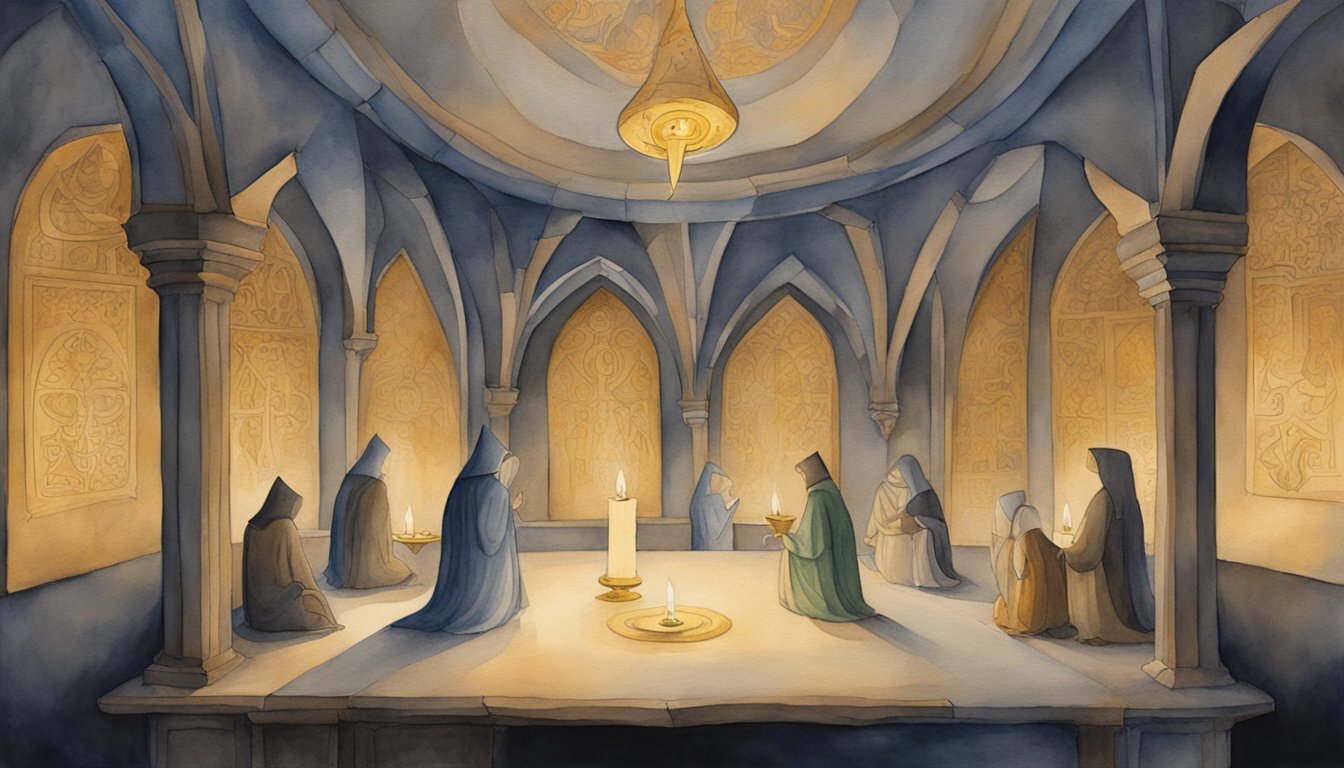Understanding Secret Societies
Secret societies have piqued the curiosity of many by their exclusive nature and mysterious practices. They have operated for centuries, often influencing political decisions, cultural norms, and social values through clandestine activities.
Historical Origins and Development
The history of secret societies traverses a rich and varied past, often rooted in ancient rituals and philosophies. Many of these groups, such as the Illuminati and the Knights Templar, have their origins shrouded in mystery, yet they appear to emerge from a need to preserve certain knowledge or pursue specific goals outside of mainstream society. For instance, the Knights Templar, established in the early 12th century, started as a Christian military order, but legends of their secret rites contribute to their mysterious legacy.
Membership Criteria and Initiation
Membership into secret societies like the Freemasons is traditionally by invitation and often requires candidates to meet specific criteria, such as moral standing or social status. Initiation rites are central to these societies, serving as a transformative process that bonds members together. For example, Freemasonry involves a series of progressive degrees that initiate members into deeper levels of membership and understanding of the group’s values.
Rituals, Symbols, and Traditions
Secret societies are steeped in symbols and traditions, with many holding elaborate rituals believed to convey philosophical or spiritual truths. The Rosicrucians, known for their blend of mysticism and philosophy, use symbology extensively as a means of teaching and understanding esoteric truths. Secret rites performed in these societies are often passed down through generations and may include elements from various historical traditions, reflecting the diverse influences that shape the society’s ethos.
Through understanding these aspects of secret societies, one glimpses the profound influence they’ve had on shaping history from the shadows.
Secret Societies and Societal Impact

Secret societies have held sway over various aspects of society, from politics to cultural narratives. Their often exclusive and clandestine nature has led to significant influence and a multitude of conspiracy theories.
Influence on Politics and the Elite
Secret societies such as Skull and Bones, with its deep roots in Yale University, have been a breeding ground for future leaders and have exercised considerable sway in North American politics. Alumni of such societies often hold positions of power, shaping policies and leadership decisions from the shadows. The exclusivity and connections that these societies foster have prompted debates on their impact on meritocracy and democracy.
Cultural Perception and Conspiracy Theories
The public’s fascination with secret societies often gives rise to various conspiracy theories. Works like Dan Brown’s “The Da Vinci Code” have amplified the mythos surrounding entities like the Holy Grail and secret codes. Historians like Umberto Eco have researched the influence of secret societies, noting how they are woven into the fabric of cultural perceptions, intertwining facts with fiction and often blurring the line between the two.
Diversity, Inclusion, and Discrimination
Secret societies have had a complex relationship with diversity and inclusion. While some, like the White Lotus in China, were born out of a need for societal change, others like the Ku Klux Klan used exclusion and discrimination as their banner. Fraternities and sororities across universities, such as those in Harvard and New York University, have evolved to become more inclusive over time, though criticism regarding secret underlying codes and continued exclusion in some respects remain prevalent.

